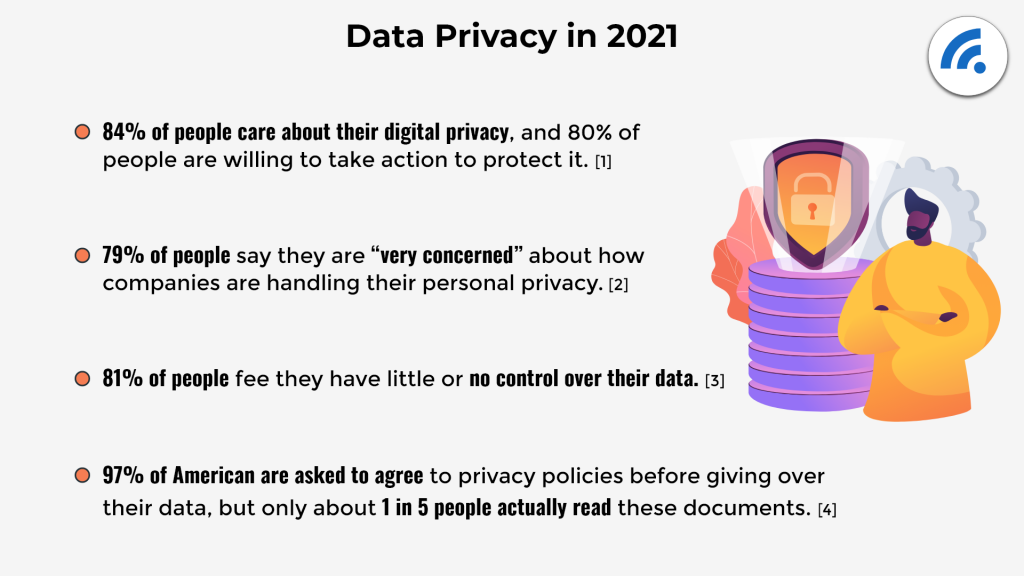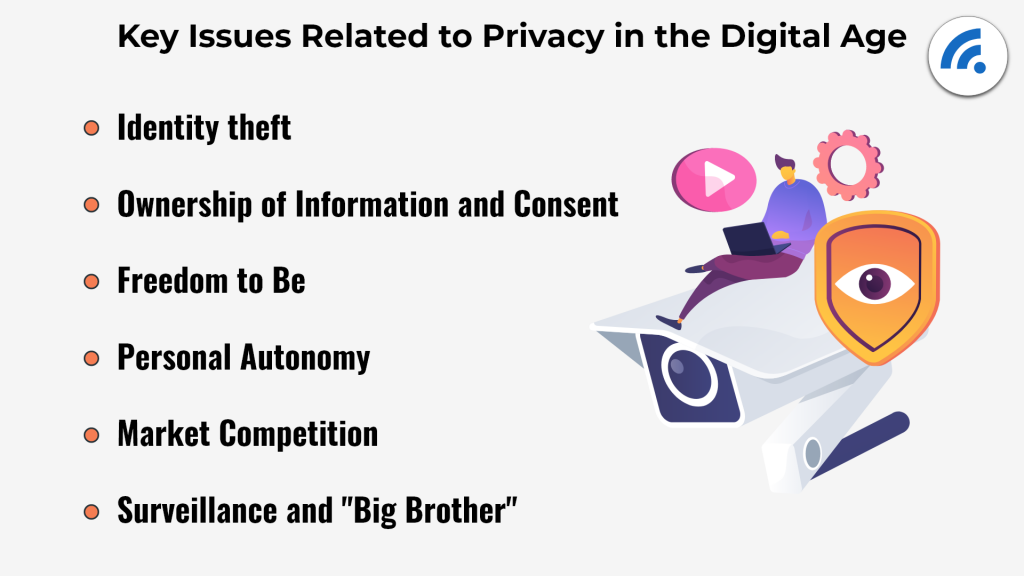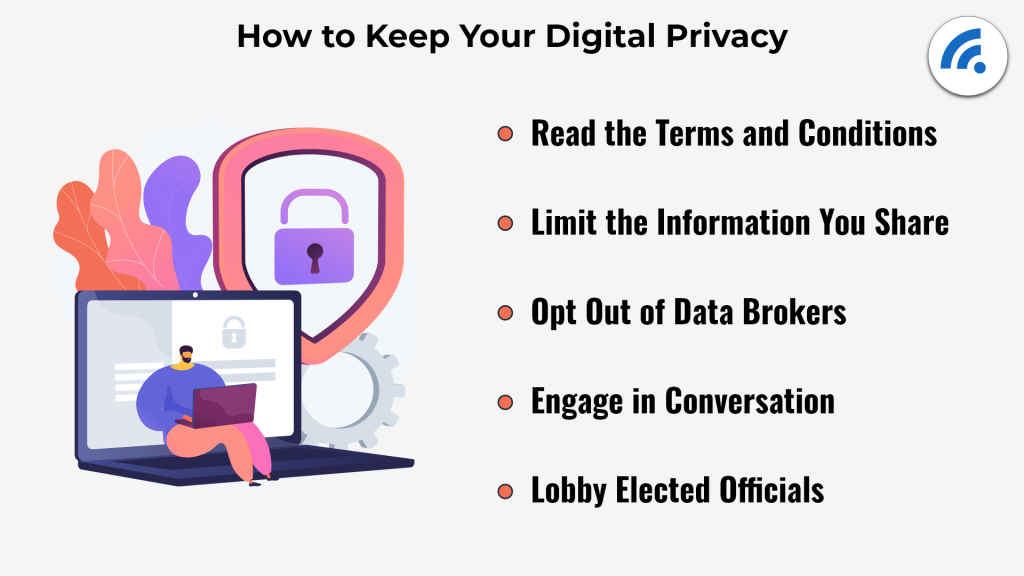
There’s no doubting that we live in an era unlike any other in human history. Technology has always driven human progress, and our lives almost always change in response to the latest tools we have at our fingertips.
However, no other technological innovation has changed humanity so much in so little time as the internet. The sheer amount of time we spend using the internet, and the number of life’s activities that have moved into the digital realm, speak to how important this technology has become. It makes it hard to believe that just 30 years ago, the internet was still pretty much nothing more than an exciting project being worked on at a handful of universities around the world.
All of this change in such a short time means there are a lot of unanswered questions. Things have been happening so quickly that the world has had little time to react, and there aren’t many examples to draw on to help us figure out if what we’re doing is right.
One of the biggest of all of these questions is: what has the internet done to privacy?
This is a complicated topic, but it’s an important one. So, to help you figure out where you stand and how you feel about this issue relating to your life, here’s everything you need to know about privacy in the digital age.
Data Privacy in 2021
Before we get into the issues, here are some stats to consider about data privacy in 2021:

What’s At Stake?
In short? Well, privacy. Not just digital privacy but all our privacy.
This seems obvious since we’re talking about privacy in the digital age. Yet, privacy existed as a concept long before there were computers and the internet. Now that these technologies are upon us, the very notion of privacy is being called into question.
At first glance, it might not be overwhelmingly clear why this is such an important issue. However, privacy is a fundamental human right.
We all live unique lives on this planet, and the ability to live these lives out privately is something people value. Knowing that someone else is not looking into what you’re doing helps build trust among people and between people and governments. It also allows space for people to create and innovate, something they might not be as willing to do if they know someone is watching.
Plus, there’s just the common sense side of it. Most of us want to be left alone. When we’re not alone, we want to be able to choose who we spend time with. Losing privacy would mean that we were never really alone, and no one wants this.
So, as we move into the digital age and more and more of our lives go online, digital privacy, an important issue in its own right, starts to represent a broader issue. Some are even going so far as to say that privacy in the digital age no longer exists.
This isn’t entirely accurate, but it is compromised. It’s essential to have discussions about it moving forward so that we as a society can make the decisions that will serve us best in the long run.
Why Is Data Collected?
The reason privacy is such a big deal in today’s times comes down to one word: data. Thanks to the massive amount of time we spend on the internet, there is a ton of data out there about our identities, interests, preferences, location, and so on.
The importance of privacy becomes more apparent, though, when we consider why this data is being collected. It’s basically to facilitate selling us stuff.
Essentially, marketers worldwide have figured out that all of this data people give up so easily can be used to better understand what people want. This allows them to deliver more targeted advertising and marketing messages, leading to more effective efforts and higher sales.
According to the companies who collect it, the other reason data is collected is to “provide you with a better service.” Their logic is that by collecting data on you and getting to know you better, they can improve their services that will ultimately make your life a lot easier.
This is likely happening, but what they’re truly after is the marketing data. That’s where the money is.
The other reason why an entity might collect data is for surveillance. Yes, you heard that right. To keep an eye on us. Now, at the moment, there is little evidence to suggest that this is happening. Still, the federal government does have broad powers to look into people’s private lives thanks to the Patriot Act and other post-9/11 legislation.
For many, this possibility is what is driving the push for better privacy. History tells us that bad people will do whatever they can to get and remain in power. So while this active surveillance might not be going on right now, it could, and it’s more likely to happen the less action we take now.
How Data is Collected and Secured
Data is collected on you pretty much every time you touch a digital device. When you log into a web browser, email client, mobile app, website, or anything else, data is gathered.
This information is taken and sent to servers, where it is amassed with all the other data collected out there. This is known as “Big Data,” a term to refer to the truly massive quantities of data that exist. This data is then handed over to the supercomputers, which use artificial intelligence software to try and make sense of it all.
The goal is to organise people into groups so that they can be better understood and therefore communicated with more directly.
In theory, all of the data that makes it to these servers is either encrypted or made anonymous. Encrypted data is meant to be understood only by parties who have the encryption code, which in some cases is no one. This means that they can’t tie your data to you. Instead, it’s just “data” that belongs to someone that goes into the giant collection of data that already exists.
Anonymous data is simply cleaned of any identifying characteristics so that no one can connect that piece of data to you.
Using these practices is the response from industries towards privacy concerns. They figure if they can make it so that the data is untraceable, what’s the big deal if they collect it? That ad isn’t targeted at “you” per se but rather to some anonymous “person” who shares all of your interests and desires and who is most likely to respond to that ad, according to the data.
Using this system allows marketers to be remarkably accurate with the messages they send. Yet, their systems are far from perfect, and there are few if any ways to verify what they are doing. It doesn’t change the fact that the data is “out there.” Even if it’s anonymous, it was still collected and shared, which, for some people, is already an invasion of privacy.
Key Issues to Consider

Okay, so now that you have a better idea of why privacy is a concern and how it is in jeopardy in the digital age, here are a few additional implications that you should keep in mind to fully grasp the significance of this issue.
Identity Theft
The fact that our lives have become more and more digital means we’re more exposed than ever to identity theft. For those who don’t know, identify theft is exactly what it sounds like: someone assumes your identity and then does what they please with it.
Not only is this terrifying, but it can wreak havoc on your finances. If someone can act as you to withdraw cash or open a credit line, it can often be challenging to have those things reversed, meaning you have no choice but to accept the consequences.
In theory, data privacy should help to reduce the threat of identity theft. With less of our data being collected, those looking to do us harm would have fewer access points, as well as fewer ways of learning about us so that they can scam us. Of course, there are other issues at play, but in this case, data privacy is also a question of personal security.
Ownership of Information and Consent
One big issue that comes up a lot when we talk about privacy in the digital age is the “ownership of information.” In other words, who owns the data collected about us?
According to the law, we do. That’s right. Every click, post, or photo, by rights, is ours, and no one else can have it. So, why then is all this data being collected? It’s simple: we agree to give it up.
“What?!” You may be thinking. “I never agreed to give up my data.” In reality, you did. Remember when you downloaded that app, signed up for that service, or made an account on that social media platform? At some point, you scrolled to the bottom of the screen and clicked a box that says you agree to that company/organisation/website’s privacy terms and conditions.
In this agreement, you effectively give away your rights of ownership as it relates to your data. It’s typically not worded that way, but it’s what happens.
How do people get away with this? Simple…no one reads the terms and conditions! Since you can’t use these services without agreeing to them, it often feels like we have no other choice but to accept. This has created a problematic situation where we are often basically forced to surrender our data to use a particular service.
The companies in question will argue this is you giving consent for them to collect data, but how much consent is really being given? From a legal standpoint, checking that box does qualify, yet not too many of us feel that we are permitting something when we do so. Therefore, this is something that needs to be at the center of the debate moving forward.
How do we get people to give informed consent? And should it be possible for people to use these services but reject the collection of their data? Neither question has an immediate answer, but both need to be considered when discussing privacy in the digital age.
Freedom to Be
Another concern many people have around digital privacy is the concept of “being left alone.” Before the internet, privacy was respected by leaving people to their devices and giving people the choice of when and how they want to let their privacy be invaded.
However, in the digital world, no such luxury is possible. The way things are set up, you are surrendering your privacy when you step foot into a digital space. It’s the equivalent of showing up at the grocery store and immediately announcing your name and address.
In the latter example, the absurdity is obvious. In the digital space, we don’t seem too concerned about this.
Now, the question becomes, is it possible for people to use the internet and “be left alone.” Perhaps, but some considerable changes would need to be made in how we do things. Is this even what people want? We don’t know. It’s an important consideration to take into account.
There are plenty of people out there who want to use digital technologies but who don’t want to surrender this information, and their concerns must at least be listened to if not addressed.
Personal Autonomy
One of the primary reasons all this data is collected about you is that marketers and advertisers can sell you more stuff.
Depending on your views of capitalism, this may or may not be a good thing. Some people think this approach is better since it makes it more likely they’ll see ads for products and services relevant to them. However, this begs the question of autonomy. In other words, with so much targeted marketing, how much freedom is left for us to decide for ourselves?
Today’s marketing’s hyper-targeted nature means we may only be exposed to a few options before making a purchase. This could be seen as bad for competition.
Of course, the counter to this is that we are all free to do our own research and look into the products out there of our own accord. If even our search results are conditioned by past web activity, how much freedom do we actually have?
Again, there is no clear-cut answer, but we must also consider freedom of choice as we consider privacy in the digital age.
Loss of Competition
As we just mentioned, all of this data collection and lack of privacy can hurt competition in our markets. To be more specific, not only does it hurt it by limiting the number of options people are exposed to, but it also hurts firms’ abilities to reach their customers.
In essence, if you don’t have access to the data out there, you’re going to be left at a pretty severe disadvantage. This means big corporations are going to be in a better position than smaller companies. This has always been true to an extent, but the gap does seem to be widening. To crunch the data out there, you need some pretty intense machinery and staff to handle it, not something every firm has.
Therefore, while all this digitisation and data collection has certainly helped businesses, we need to ask if it’s the best thing for the overall economy. So much data is out there and being traded so openly and freely.
Surveillance and Big Brother
We hinted at this earlier, but it’s worth mentioning again: one of the big reasons we should protect privacy is to protect against government surveillance.
Upon hearing this statement, you might be quick to dismiss it as an irrational fear of a tinfoil hat-wearing conspiracy theorist. However, it doesn’t take a Ph.D. in history to know that oppressive governments like to take control over information and also place serious limits on what people can say or do.
The data collection system that is currently in place is a treasure trove of information for prying eyes. While the current protections limit how much the government can get at this information, it’s still there. All it takes is the right political moment for it to be unearthed for immoral purposes.
Up until now, tech companies have fought against this. They have refused to allow governments to access data even when they want to try and catch a criminal. No one wants to set the precedent that the government can access all that data.
We’re far from a society like the one in George Orwell’s 1984, in which Big Brother monitored all aspects of life, including thought. It’s also not hard to see how we could go from what we currently have to something like that, and so it’s essential to remain vigilant of this threat and keep it a part of privacy conversations moving forward.
Do People Want Privacy?
Lastly, one question that we should not ignore is whether or not people want privacy. Up until now, we’ve been operating under the assumption that privacy is good. There are many reasons why it is and why it needs to be protected, but not everyone sees it this way.
In general, those who aren’t concerned with privacy think this way because they adopt an “I’ve got nothing to hide” mentality. The logic here is that it makes no difference if data is being collected about them because they aren’t worried about what someone might hide.
This makes sense, but it’s also a somewhat dangerous way of thinking. There are plenty of people out there who also don’t have anything to hide but also don’t want people prying into their business. Just because some people don’t mind their privacy being invaded, that doesn’t mean that everyone should have to subject themselves to this treatment.
The other thing to keep in mind is the reality that people will often quite willingly give up privacy in exchange for something. For example, they may lament that data is collected about them, but they’ll quickly surrender their email or phone number to get a free pizza or save a few bucks at a store they like.
Such a thing happens often, and when it does, we have to ask: is it worth protecting privacy if people give it up so easily?
Again, fair question. But, again, it’s a dangerous thought. It’s pretty likely people in these situations are acting not thinking too much about their privacy ramifications. A big reason for this is because they simply don’t know.
How to Keep Your Privacy
At this point, you should have figured out that privacy in today’s digital age is most certainly in question. You have probably also figured out that, in the current climate, we’re pretty close to helpless when it comes to reclaiming our privacy.
There are, however, a few things you can do, such as:

Read the Terms and Conditions
As we mentioned, part of why so much data is collected about you is because you technically give it away. Therefore, one way to protect your privacy would be to commit to reading the terms and conditions of a service before signing up or giving away any information.
This would allow you to see what data is being collected and what’s being done with it.
Of course, this isn’t the most practical solution. These documents are notoriously long, and if it’s a service you need, then reading the terms won’t change this. You will still need to decide between using the service and giving up your data or not using the service at all.
Still, this is better than nothing and makes it clear to you how your privacy is being violated.
Limit the Information You Share
Another thing you can do is simply limit the amount of information you share. Use private browsing, reputable VPNs, search engines such as DuckDuckGo, and avoid social media like the plague.
This is also going to be challenging since data collection is so much a part of our lives. However, if you operate with the knowledge that your data will be collected, you can be more mindful of what you’re giving up and take some steps to keep your digital life private.
Opt-Out of Data Brokers
Although pretty much everyone out there is collecting data on you while you use the internet, a few entities do it a lot more than others. Mainly data brokers.
These services exist for one reason and one reason only: to collect data on you as you use the internet.
They then analyse this data and sell it to marketers. It’s anonymous, but it’s still “yours.”
Fortunately, you can opt-out of these services so that they don’t collect information on you. Unfortunately, there are tons of these services. It’s a pain to have to go through, and one by one, remove yourself from these services, but it’s well worth the effort if privacy is your concern.
Engage in Conversation and Lobby Elected Officials
At this point, tech companies definitely have an advantage when it comes to data privacy. The way the laws are set up, data collection is perfectly legal and protected. However, just because it is currently this way doesn’t mean it always needs to be this way.
This is an issue that is of significant concern in today’s public debate, and the conversation is very much ongoing. Therefore, one of the best things you can do is to be an active citizen. Engage in conversations with friends, family, and other connections so that you can talk about these issues and learn new perspectives. If you feel something needs to change, you can reach out to your elected officials and encourage them to take action or organise something of your own.
Privacy in the Digital Age: It’s Just the Beginning
As you can see, the development of and our dependence on digital technologies has raised lots of questions related to privacy. The reality is that we’re just at the beginning of this debate. These technologies are so new that we don’t even really know their full impact yet. If one thing is for sure, though, it’s that this debate is just getting started, and it’s likely going to be heated.
This article first appeared on – https://www.broadbandsearch.net/blog/privacy-in-the-digital-age
Visit the Broadband Search website to hear more about staying safe online.
